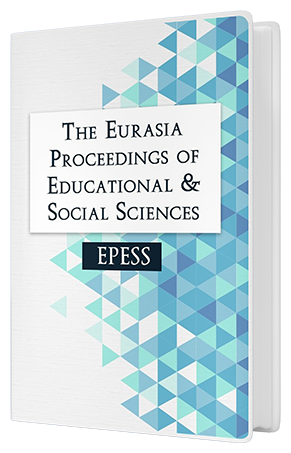Lebanese Public Schools Principals’ Attitudes, Level of ICT Use and Leadership Style
Keywords:
School principals’ attitudes, University training program, ICTAbstract
The purpose of this study was to investigate attitudes towards ICT, level of ICT use, and leadership style of the Lebanese public schools’ attending a training program at the Lebanese University, Faculty of Education. The training program, in which 204 principals from all over Lebanon participated, lasted for three months. At the end of the program, they filled a survey questionnaire and only 192 filled-in the questionnaire. Data collected were analyzed using descriptive analysis and correlations were calculated to identify the relationships between ICT use and gender, age, number of computers at school, earned Diploma, geographical location. School principals agreed that they benefit greatly from the ICT course; it helped them in improving their computer skills relevant to their administrative work. Findings also suggest that there is a no significant correlation between the use of ICT and school principal gender and age, the good equipment of schools is irrelevant with the school geographical location (urban/rural city). Moreover, within this study, the researchers identify significant challenges faced by the trainees’ school principals, for instance, the little number and the lack of computers in their schools, the absence of IT teachers and even many of them did not use often computers in their daily routine works before the training program. Finally, Lebanese school principals adopted an administrative style with an emphasis on the accountable management behavior. Future qualitative studies are recommended to gain in-depth knowledge about the use of ICT by school principals in their schools.Downloads
Published
Issue
Section
License
Copyright (c) 2018 The Eurasia Proceedings of Educational and Social Sciences

This work is licensed under a Creative Commons Attribution-NonCommercial-ShareAlike 4.0 International License.
The articles may be used for research, teaching, and private study purposes. Any substantial or systematic reproduction, redistribution, reselling, loan, sub-licensing, systematic supply, or distribution in any form to anyone is expressly forbidden. Authors alone are responsible for the contents of their articles. The journal owns the copyright of the articles. The publisher shall not be liable for any loss, actions, claims, proceedings, demand, or costs or damages whatsoever or howsoever caused arising directly or indirectly in connection with or arising out of the use of the research material. All authors are requested to disclose any actual or potential conflict of interest including any financial, personal or other relationships with other people or organizations regarding the submitted work.




